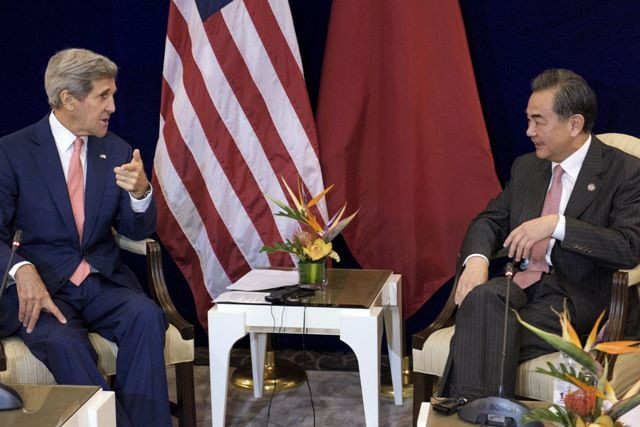China not playing by ASEAN rules as South China Sea tensions rise

Controversy over the South China Sea dispute continues to build as tensions escalated during high-level diplomatic talks in Malaysia, when China made moves that could ruin the chance to create a binding code of conduct for ASEAN countries.
Although China had recently agreed to make substantive negotiations on the issue of a code of conduct, her lack of progress have angered rival countries fighting for claims over the territorial waters, including Philippines, Vietnam, Malaysia, Taiwan and Brunei, all of whom have been pushing for a set of guidelines for over a decade.
In the Kuala Lumpur meeting, China also hit back at the United States for asking it to stop their artificial island building in the flashpoint waters of the South China Sea, by saying that other nations shouldn’t be interfering in the conflict.
China’s foreign minister Wang Yi furthermore accused the U.S. for spreading their military base in the South China Sea region by deploying joint patrols and military drills with the help of its regional allies.
He asked both Philippines and the US to "count how many runways there are in the South China Sea and who built them first,” before they pointed fingers at China.
Relations between China and the US have become more strenuous in recent times when US Pacific Command Chief Harry Harris flew an aircraft "cruise" over the area. As U.S. military describes the building of islands as extending china’s military posts, a Washington-based think tank have also reported that Beijing is involved in building a 3000-metre runway on an artificial island that could be used for combat purposes.
Philippines foreign secretary Albert Del Rosario has vehemently criticised China’s operations in the South China Sea by labelling it "massive reclamation activities" in the disputed waters. "We see no let up on the unilateral and aggressive activities of our northern neighbour in the South China Sea," he said at the annual talks of the 10-member Association of South-east Asian Nations and their key trading partners.
ASEAN's secretary-general Le Luong Minh also expressed discontent over China’s reclamation work, which he says results in the erosion of trust and confidence among member nations. He also condemned China’s reluctance to reach a consensus over the code of conduct.
Australia’s foreign minister Julie Bishop, while refusing to take sides, has said she would delve deeper into the issue of the South China Sea conflict. Meanwhile, US Secretary of State John Kerry has tried to downplay the issue, telling ASEAN ministers earlier today that his meeting with Wang had gone well, reports AP. "We will find a way to move forward effectively, together, all of us," he said.
A senior state department official said Kerry and Wang also discussed about cybersecurity and human rights in China, as well as Chinese President Xi Jinping's visit to the US this coming september. "They agreed there are many shared challenges that both countries should work closer together to address, such as climate change and development, and that more dialogue and cooperation between the United States and China remains vital," the official said.
Contact the writer at feedback@ibtimes.com.au, or let us know what you think below





















